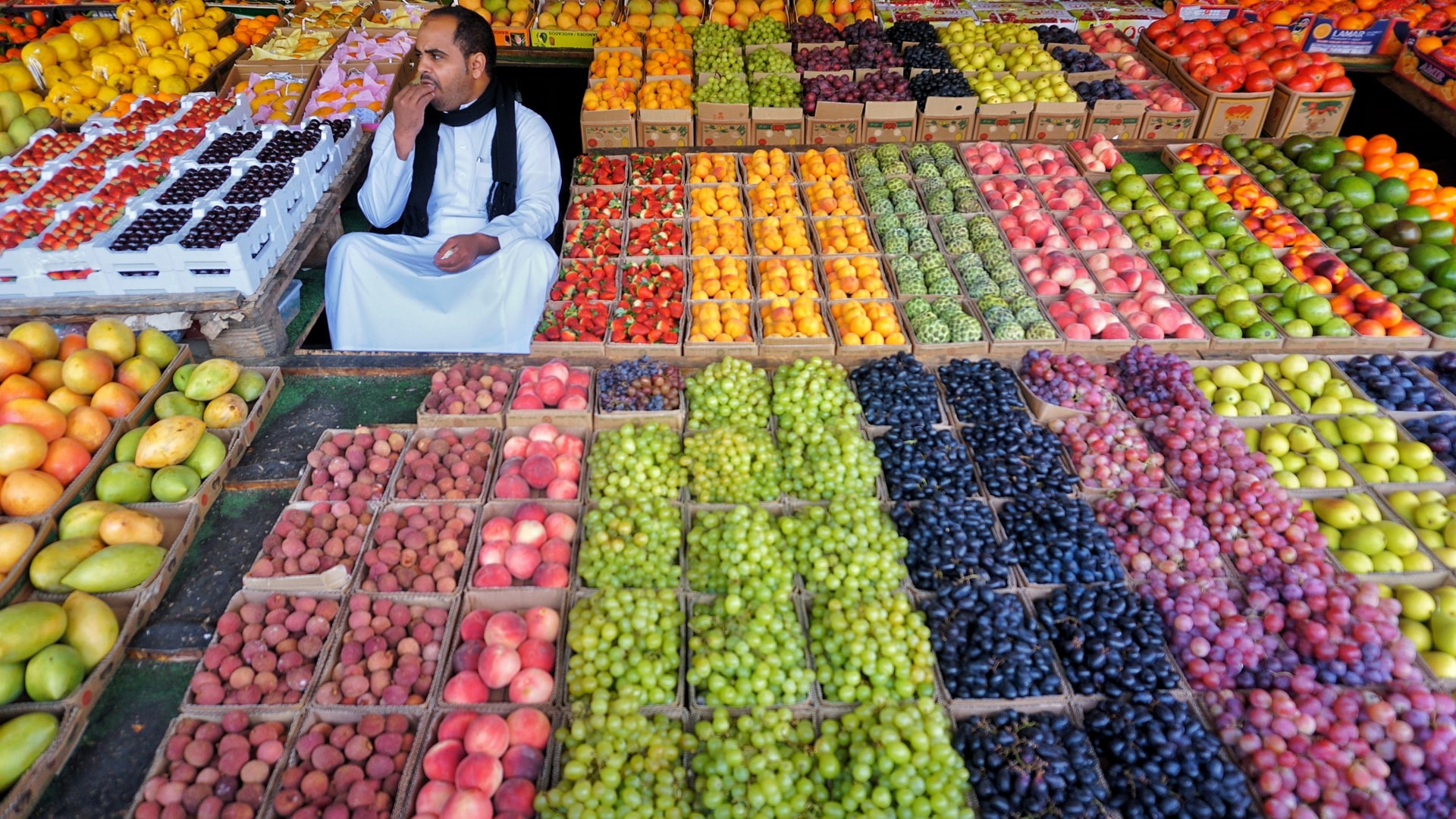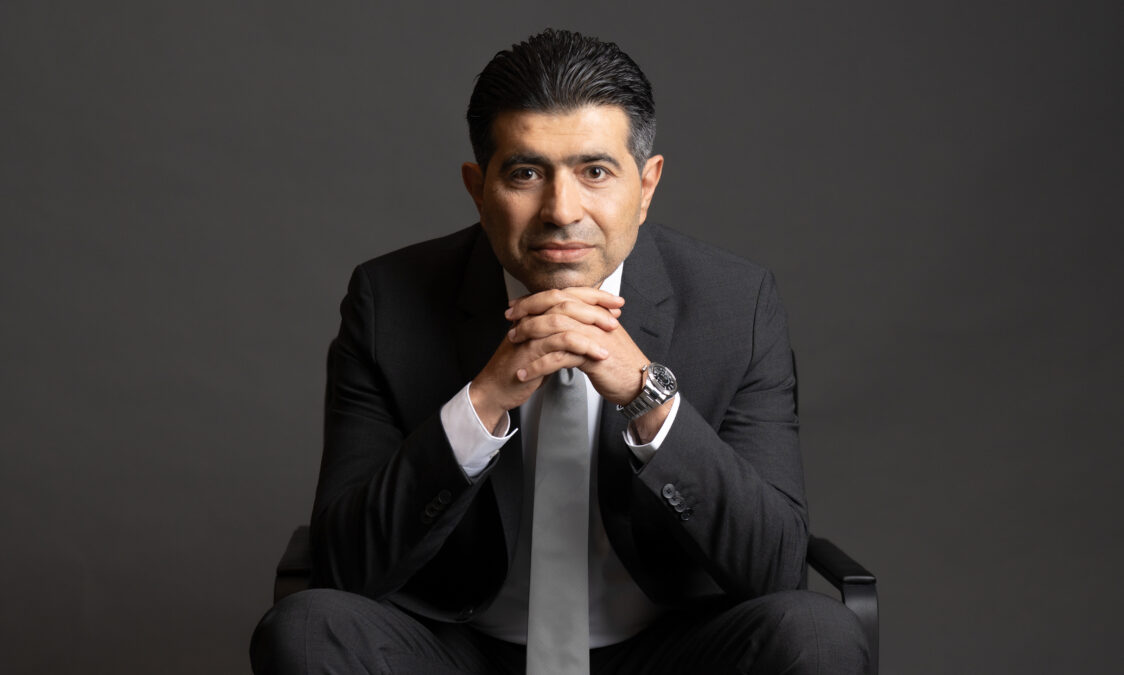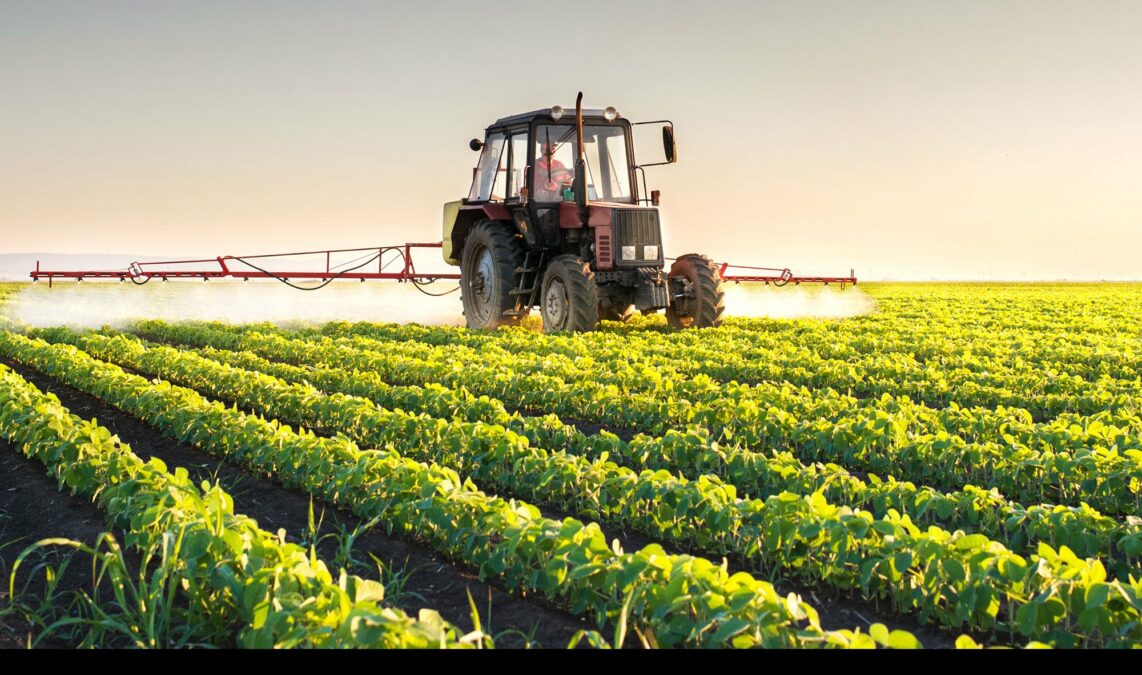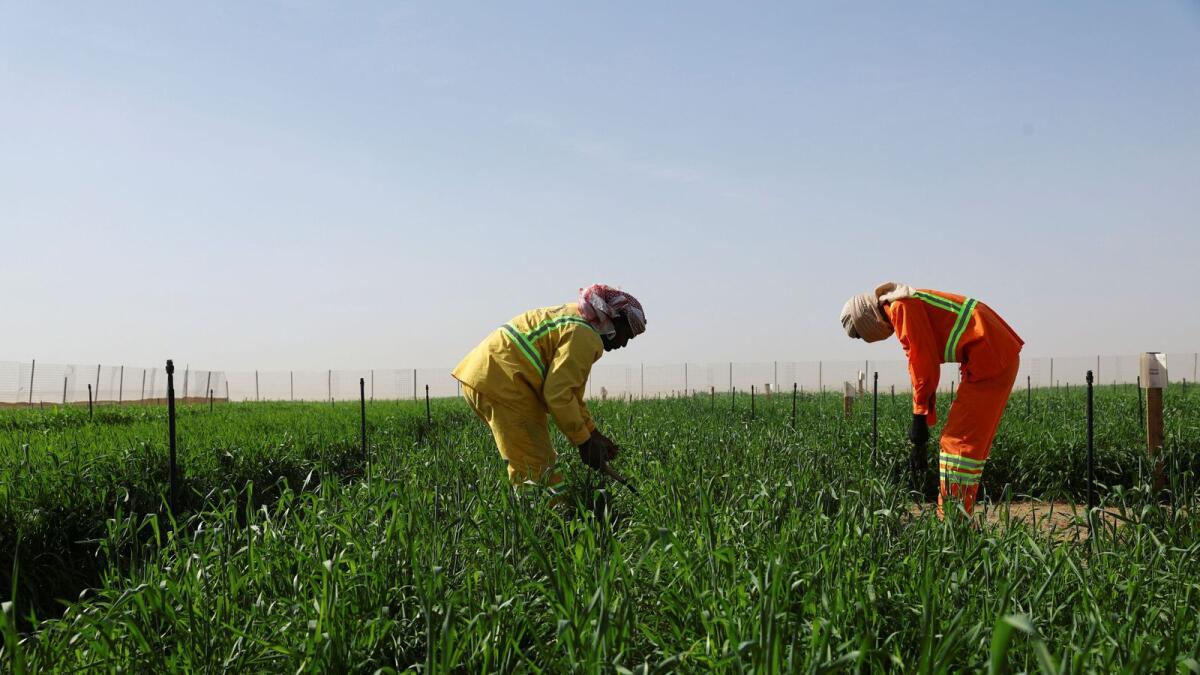Dubai, UAE— For the last few years, many countries in the Middle East have been consumed with deepening hunger for achieving self-sufficiency in food production. From Saudi Arabia to the United Arab Emirates (UAE), and many other GCC countries, billions of dollars have been poured into ventures to grow food locally.
Saudi Arabia intends to ramp up its self-reliance in growing food to 70 percent by 2030, and the UAE as part of its new food-security strategy looks to raise it to 30 percent by the same time. Not to be outdone, several other GCC countries this year unveiled a new joint initiative to promote food security, announcing measures to raise investment in food manufacturing, improve agricultural productivity, and reduce food waste.
The growing realization to cultivate food in the Middle East didn’t grow out of nothing. During the last few years governments across the Middle East have watched with mounting anxiety the import of grains from Russia and Ukraine narrow down to a small trickle. The Covid pandemic curbs caused the first disruption to the supply chain and then the Russia-Ukraine war simply caused a great catastrophe, leading to food shortages and massive price hike.
The entire Middle East and North Africa region depended on grains like wheat in order to make bread, a vital component of daily diet. Price of bread went through the roof. Long queues of customers stood outside bakeries in many places. There was an apprehension of trouble breaking out if people did not have access to a commodity as vital as wheat.
The prospect of scarce food on the market seemed to have galvanized many countries into action. The urgency with which the investments are being made is designed to undercut dependence on food imported from outside the region. The Covid pandemic and much more forcefully the Ukraine-Russia war seemed to have illustrated to the Middle Eastern governments the threats posed by wars, natural disorders to the supply of food, and its catastrophic impact on social cohesion.
While the idea to make the desert bloom with food may be tempting to the governments in the region, one can only wonder if it is plausible, practicable to turn an arid region under a blazing sun into furrowed fields of wheat, rice or vegetables.
This TRENDS article casts a look at how the region has undertaken a colossal campaign for food security.
In 2020, the GCC countries imported around 85 percent of their food from around the world. Such dependence made them vulnerable to disruptions in global food markets. The pandemic and the war have highlighted this vulnerability and have led the GCC countries to invest more heavily in domestic food production.

They are investing in a range of food manufacturing projects, like dairy products, meat, poultry, fish, fruits, vegetables, and processed foods, apart from investments in food storage and distribution infrastructure.
The focus on food manufacturing is seen as a vital step toward ensuring long-term food security, economic diversification, and regional stability. By investing in agriculture, food processing, and innovation, the GCC countries can not only reduce their dependence on food imports but also foster sustainable development, contributing to global food security efforts.
This way the region can position itself as a significant player in the global food market, demonstrating that a future beyond oil is both possible and promising.
Self-sufficiency and food security are the primary motivators for a greater emphasis on local manufacturing.
The UAE, for example, has allocated nearly $250 million to an architect innovation program and has recently decided to prioritize the implementation of circular-economy policy in four key sectors: manufacturing, food, infrastructure, and transportation. The country is investing in food manufacturing as part of its Food Security Strategy 2051. It is also developing new agricultural areas and promoting the use of environmentally friendly farming methods.
In addition, Saudi Arabia has established the National Food Security Program and the King Salman Agriculture Development Fund to boost domestic food production. The country is putting money into new technologies such as vertical farming and hydroponics. Also funds for local farming loans and facilities are included in the Saudi Vision 2030.
However, experts point to a number of challenges that need to be addressed in order to boost food manufacturing in the region.
Some of the challenges for local manufacturing, according to Ramy Merdan, Chief Operating Officer, of Agthia Group, are related to regulations and registrations. For example, the UAE government is always willing to approve imported finished products, whereas local manufacturers face more stringent registration and regulatory requirements.

“This is one of the challenges. I would say that whenever we face something similar to this, we take the proof of the products already on the market and say, we need you to change the regulations to follow international practice, and they are very flexible in supporting our request and adjusting it. So, if they continue to improve in order to meet international standards, I believe it will be beneficial to us,” said Merdan.
“In terms of using local ingredients, we are developing a lot in terms of number of local items. However, you need to know that there are a lot of products that we can’t produce locally, so we cannot have agri for wheat for example. This will not happen in the UAE or Saudi Arabia, for example, because you need a specific soil and a specific weather,” he added.
He goes on to say, “So, where we need to import, we are trying to import from different sources, but where there is an agri requirement within the country and we can grow it, we have a complete program.”
Jean Claus, CEO, of Allianz Trade, on the other hand, believes that the GCC’s high import dependence is putting pressure on margins due to rising input costs.
“Additionally, we have this region’s unfavorable climate conditions and limited arable land, which pose specific challenges to local producers. To overcome this challenge, medium and large players are working to control various aspects of the supply chain, such as logistic distribution, through backward and forward integration,” said Claus.
Despite these challenges, GCC governments are taking steps to support local farmers, with a focus on local farms and investments in farms outside the region. For example, they provide water and fertilizer subsidies and invest in research and development of new agricultural technologies.

The UAE and Saudi Arabia are increasingly adopting vertical and controlled-environment agriculture to address this limitation posed by its geography.
“The benefits of such a step are securing products or agri products that cannot be produced locally,” says Merdan, adding that by doing so, they are buying the crop, controlling the crop, controlling the yield, and determining how to improve the yield. This is the primary advantage.”
“The second consideration is freight costs. So, for example, whenever you have a seasonal, let’s talk about wheat. September and October are the seasons for wheat harvest. So, this is where you can get very good deals on wheat. However, because everyone is shipping it at this time, the freight cost will be very high. With your own farm outside, you can store your product and decide when to ship it. As a result, your freight costs will be rationalized. So, if you own the farm, you can do it at a low cost. It is also part of security. You are also securing this crop because you own the farm, so you know it belongs to you,” he said.
Merdan expects the level of growth in the food manufacturing industry to continue until reaching a level where everyone will be tight in competition.
“I don’t think we are there yet. So, if we talk about Egypt as a country, there are a lot of factories for more than 20 years and there is a very tough competition. However, we have not yet reached this level in the GCC, so many people will continue to invest, and many people will continue to benefit from growth because the pie is so large now. I believe we will reach a certain level of saturation, but not before the next five years,” he said.
Claus also anticipates that the GCC food market will continue to grow, driven by its population and economic growth.
“Processing and distribution will continue to remain a dominant part of the GCC food-supply chain, with the increase in the agricultural alternate farming technique. Governments must work on backward integration, which is expected to aid in better resource control and management, resulting in a shorter supply chain and higher margins due to lower input costs,” said Claus.
According to him the ongoing war between Russia and Ukraine has had a significant impact on the global supply chain, causing a food shortage as well as higher input and transportation costs.
“GCC countries have also seen a rise in cost of agricultural produce and imports, however, and we have seen it during the COVID-19 the economies in GCC have sufficient financial buffers to ensure continuous food import as well as ability to absorb price shock in the short and the medium term” added Claus.

Merdan believes that it pays to have a range of suppliers rather than bank on a single source, a strategy he feels is full of risk. “COVID was one element, but another example is the war between Russia and Ukraine. Many businesses, including Agthia, altered the mindset of having a single supplier. You should have more than one source and not only from the Black Sea region, which is the corn and wheat-producing region.
“Previously, the mindset of having alternate suppliers did not include suppliers from other regions. Now, depending on what’s going on in the region, you’ll need alternative suppliers from different regions; however, if you do it from different regions, the products’ specifications will differ. Purchasing corn from Brazil differs from purchasing corn from the Black Sea or Ukraine. This means that you must also modify your specification and your formulation. As a result, there are numerous changes taking place. This is where you will still need to import, but you need to havediversity. You must have different regions, which will, of course, affect your formulation, but everyone is pushing for more local production. Everyone is attempting to localize as much as possible,” he said.
According to Claus, three major factors are propelling the food manufacturing sector in the GCC region. The first is geopolitical and supply-chain concerns and the second driver is diversification efforts and economic development because most GCC economies are reliant on oil, and this sector is a way to diversify from oil revenues while also creating new job opportunities. “Finally, there is a growing population and shifting consumer demand. We have seen a very rapid increase in population, but also in taste, which is forcing food manufacturers to diversify and increase their supply.”
Merdan feels that the region’s population density is an important factor in the region’s food manufacturing path.
On the other hand, he believes that business growth is the key factor. For example, the UAE is growing at a rate of 5 to 6%, while Saudi Arabia is attempting to exceed this. “So we have business growth and an increase in the number of people, which are the primary drivers, because without an increase in the number of people and consumption, it is impossible to commit to investment. So this is something which is helping all companies to start producing locally as there is no risk of volume loss or concerns about potential consumption,” he said.
Furthermore, regulations, according to Medran, are also another important factor. “We see significant improvement in how GCC governments are adopting and being flexible to international regulations. The UAE is adopting international standards and updating specifications and regulations on an annual or monthly basis, whereas Saudi Arabia was lagging far behind, but has made significant progress in the last three years.”
Oman and Kuwait are improving as well, but not on the same scale. So, regulation is an important component if we want to produce locally and encourage people to produce locally.
“Also there has been a significant improvement in quality control across all food manufacturers. So the level of understanding of how important is quality is improving as well, resulting in higher quality and products, as well as loyalty to GCC brands,” he added.

